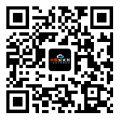詳細說明
Species Reactivity
Human
Specificity
Detects human NTB?A/SLAMF6 in direct ELISAs and Western blots. In direct ELISAs and Western blots, no cross?reactivity with recombinant human (rh) BLAME and rhCRACC is observed.
Source
Monoclonal Mouse IgG 1 Clone # 292810
Purification
Protein A or G purified from hybridoma culture supernatant
Immunogen
Mouse myeloma cell line NS0-derived recombinant human NTB?A/SLAMF6
Leu28-Lys225
Accession # Q96DU3Formulation
Lyophilized from a 0.2 μm filtered solution in PBS with Trehalose. *Small pack size (SP) is supplied as a 0.2 μm filtered solution in PBS.
Label
Unconjugated
Applications
Recommended
ConcentrationSample
Western Blot
1 μg/mL
Recombinant Human NTB-A/SLAMF6 Fc Chimera (Catalog # ) under non-reducing conditions only
Please Note: Optimal dilutions should be determined by each laboratory for each application. are available in the Technical Information section on our website.
Preparation and Storage
Reconstitution
Reconstitute at 0.5 mg/mL in sterile PBS.
Shipping
The product is shipped at ambient temperature. Upon receipt, store it immediately at the temperature recommended below. *Small pack size (SP) is shipped with polar packs. Upon receipt, store it immediately at -20 to -70 °C
Stability & Storage
Use a manual defrost freezer and avoid repeated freeze-thaw cycles.
12 months from date of receipt, -20 to -70 °C as supplied.
1 month, 2 to 8 °C under sterile conditions after reconstitution.
6 months, -20 to -70 °C under sterile conditions after reconstitution.
Background: NTB-A/SLAMF6
NTB-A (NK-T-B-antigen), also known as Ly108 and SLAMF6, is a 60 kDa type I transmembrane glycoprotein that belongs to the SLAM subgroup of the CD2 family (1). Mature human NTB-A contains a 205 amino acid (aa) extracellular domain (ECD) with one Ig-like V-set and one Ig-like C2-set domain. It also contains a 21 aa transmembrane segment and an 84 aa cytoplasmic domain with two immunoreceptor tyrosine-based switch motifs (ITSMs) (2, 3). An alternately spliced isoform is truncated in the cytoplasmic domain and lacks the two ITSMs. Within the ECD, human NTB-A shares 48% aa sequence identity with mouse and rat NTB-A. The ECD of human NTB-A shares 19%?34% aa sequence identity with comparable regions of human 2B4, BLAME, CD2F-10, CD84, CD229, CRACC, and SLAM. NTB-A is expressed on the surface of NK, T, and B lymphocytes as well as eosinophils (2, 4, 5). It interacts homophilically through weak associations between the Ig-V domains (2, 5?7). NTB-A functions as an activating coreceptor on NK and T cells (2, 5, 6, 8). Tyrosine phosphorylation in the membrane proximal ITSM enables specific association with EAT-2, an interaction that is required for NTB-A mediated cytotoxicity of NK cells (9). Phosphorylation-dependent NTB-A association with SAP is required for full production of IFN-gamma by NK cells (5, 9). This interaction is independent of EAT-2 binding and appears to involve the membrane distal ITSM (5, 9). NTB-A deficient mice show weakened Th2 responses and elevated levels of neutrophil-derived inflammatory mediators (10). On B cells, NTB-A modulates immunoglobulin class switching and the balance between tolerance and autoimmunity (5, 11).
References:
Veillette, A. (2006) Immunol. Rev. 214:22.
Bottino, C. et al. (2001) J. Exp. Med. 194:235.
Fraser, C.C. et al. (2002) Immunogenetics 53:843.
Munitz, A. et al. (2005) J. Immunol. 174:110.
Valdez, P.A. et al. (2004) J. Biol. Chem. 279:18662.
Flaig, R.M. et al. (2004) J. Immunol. 172:6524.
Cao, E. et al. (2006) Immunity 25:559.
Stark, S. and C. Watzl (2006) Int. Immunol. 18:241.
Eissmann, P. and C. Watzl (2006) J. Immunol. 177:3170.
Howie, D. et al. (2005) J. Immunol. 174:5931.
Kumar, K.R. et al. (2006) Science 312:1665.
Long Name:
NK-T-B Antigen/SLAM Family Member 6
Entrez Gene IDs:
114836 (Human)
Alternate Names:
Activating NK receptor; CD352 antigen; CD352; KALIFLJ50657; Ly108; NK-T-B-antigen; NTBA receptor; NTBA; NTB-A; NTB-AMGC104953; NTBAT- and B-cell antigen; SF2000; SLAM family member 6; SLAMF6










 粵公網(wǎng)安備44196802000105號
粵公網(wǎng)安備44196802000105號